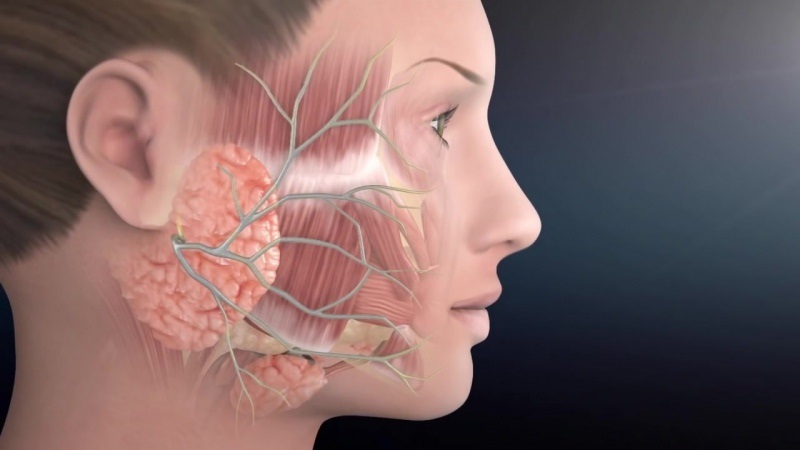What is jaw cancer?
A tumor in the jaw | In recent years, the prevalence of cancer has been a growing concern worldwide. One of the lesser known but equally serious types of cancer is jaw cancer. Jaw cancer refers to the abnormal growth of cancer cells in the jaw bone or surrounding tissues. It can occur in different parts of the jaw, including the upper and lower jaw. Diagnosing this condition in its early stages can be very challenging, so understanding its potential causes and symptoms is essential.
Causes and key factors of jaw cancer
The causes of jaw cancer are complex and can include a combination of factors. Here are some key factors and potential causes associated with jaw cancer:
1- Smoking and alcohol use
One of the main causes of jaw cancer is smoking and alcohol use. Harmful chemicals in these materials can damage jaw cells and increase the risk of cancer.
2- Human papillomavirus (HPV)
HPV are a group of viruses that increase the risk of several cancers, including jaw cancer. It can be transmitted through sexual contact and affect the cells of the oral cavity.
3- Genetic factors
In some cases, genetics play a role in jaw cancer. If you have a family history of cancer, you may be at higher risk.
4- Poor oral hygiene
Neglecting oral and dental hygiene can lead to various dental problems, including gum disease. Long-term gum disease can contribute to jaw cancer.
5- Employment conditions
Some people may be exposed to carcinogens at work (Carcinogenic substances) such as industries that contain wood dust, asbestos or formaldehyde. Long-term exposure to these substances can contribute to the development of cancer.
6- Exposure to radiation
Exposure to ionizing radiation, whether through medical treatments or occupational settings, can increase the risk of jaw cancer..
Follow Dr. Behnam Khorrami, Isfahan nose surgeon - Isfahan jaw surgeon on Instagram.
Knowing the most important symptoms of jaw cancer
Knowing the early symptoms of jaw cancer is very important for early diagnosis and timely medical intervention. Here are the key indicators of jaw cancer:
-
swelling of the jaw:
Unexplained and persistent swelling in the jaw or facial area is one of the early symptoms of jaw cancer. This swelling may be localized or affect a larger part of the jaw.
-
jaw pain:
Persistent pain in the jaw, which may vary from mild discomfort to severe, throbbing pain, is a significant symptom. The pain may spread to other areas of the face and head. People with jaw cancer often experience constant pain in the jaw, which may be mild at first but can become severe as the disease progresses..
-
jaw mass:
The presence of an abnormal lump or mass in the jaw area should be cause for concern. The mass may be palpable and accompanied by tenderness or discomfort.
-
Getting wobbly teeth:
Jaw cancer can lead to loose teeth, especially in the affected area. This tooth instability is often not explained by other oral health issues.
-
Difficulty moving the jaw:
If you experience limited or painful jaw movements, it could be a sign of jaw cancer. This restriction can affect your ability to open your mouth fully, chew, or speak comfortably.
-
Changes in oral health:
Pay attention to any changes in your oral health. These can include bleeding gums, difficulty fitting dentures, and sores or ulcers in the mouth.
-
Symptoms of jaw cancer in the ear:
Advanced jaw cancer may cause symptoms such as pain, discomfort, or even hearing problems in the ear. These symptoms can be related to the spread of cancer to nearby structures.
-
Voice changes:
In advanced cases, jaw cancer can affect the vocal cords or other nearby structures, leading to voice changes, hoarseness, or difficulty speaking clearly..
-
Difficulty swallowing:
As jaw cancer progresses, swallowing food and liquids comfortably may become more challenging. This swallowing problem, known as dysphagia, can affect your daily life.
-
Unexplained weight loss:
Sudden and unexplained weight loss, especially when not accompanied by changes in diet or physical activity, can be a worrying sign of advanced jaw cancer..
-
tiredness:
Advanced cancer can lead to fatigue, weakness, and a general feeling of low energy. This symptom may become more apparent as the cancer progresses.
It is important to remember that these symptoms can also be caused by other medical conditions. However, if you experience any of these symptoms, especially if they last for a long time, get worse over time, or are accompanied by other worrisome symptoms, it's important to see your doctor right away.. Early diagnosis and treatment significantly increase the chances of successful management of jaw cancer.
Dr. Behnam Khorrami's page in the clinic 24 View it.
Suggested contents of Dr. Behnam Khorrami's website (Best of nose surgery – Jaw surgeon of Isfahan):
